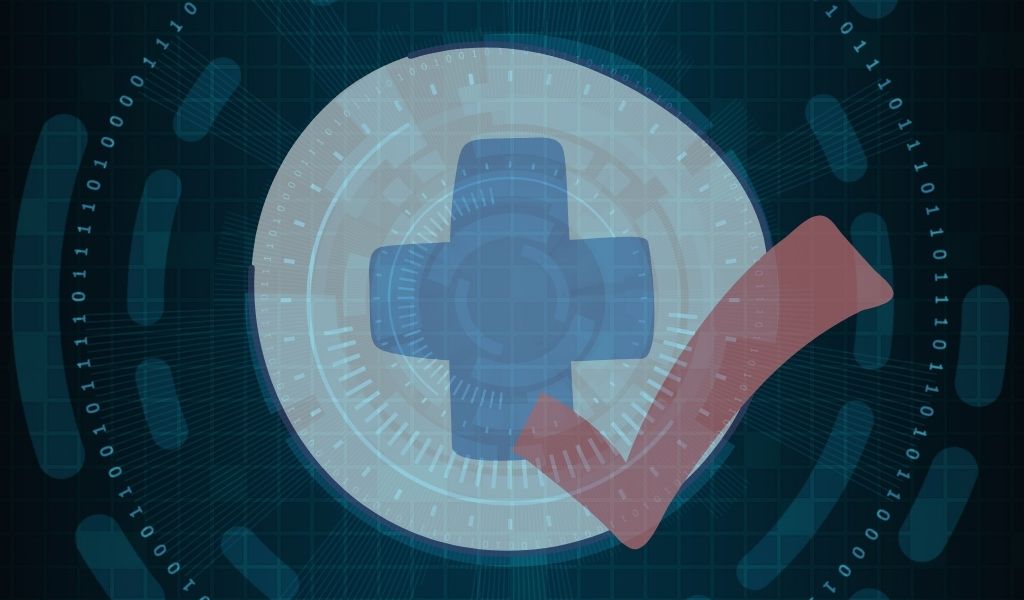Since the 20th century, the healthcare industry has been going through a digitization phase but the sudden onset of the pandemic has expedited this transition. The Covid-19 pandemic has tested the limits of healthcare.
Due to the mandatory social distancing during the Covid 19 pandemic, telemedicine has become the safest system for patients and clinicians to interact.
The virus has shifted the focus to telemedicine and health tech. From booking an appointment to getting a consultation, all health care services are being provided remotely.
As, cybercrime adapts to its environment. With the increasing demand for healthcare technology, the risk of it has increased too. Like the doctors and patients, thieves have shifted their focus towards technology too. Along with hospitals and doctors, malware practitioners have jumped on the bandwagon of going online.
From being a collateral victim, healthcare has now become a direct target of hackers. From breaching websites to stealing patient’s records, the healthcare industry is facing a new realm of problems. Hackers and malicious actors have launched phishing campaigns, with the the intent to harm a company or to steal goods or records.
The healthcare systems need to spend on cybersecurity, much like how they used to spend on security guards and cameras. Innumerable data breaches, as reported by the GlobalData has made cybersecurity in healthcare, a mission-critical technology. Almost 132 breaches have been reported between February 2020 and May 2020, by HHS. This is an almost 50% increase in reported breaches during the same duration and time last year.
Table of Contents
Types of malware
Malware actors often use different types of malware to breach a companies data. The wisest way to prevent any breach is to stay on high alert. Certain types of malware should be on a healthcare company’s radar. Being aware of all these malware can prevent a company from a breach.
The most common malware, that poses a threat to healthcare systems are; virus, worms, trojan, rootkit, keystroke logger, RAM scrapping, adware, Rogue security software, and ransomware. Looking out for all of these can prevent a potential breach. Sapphire can help you well in this regard.
Reasons for increased malware activity during Covid
With the onset of the pandemic cybersecurity organizations have noted a drastic increase in malware activities, in the healthcare industry.
The European Union agency of cybersecurity (ENISA) has highlighted a few reasons for the drastic increase in malware activities regarding healthcare companies.
- High demand for protective gear and disinfectants like sanitizers and masks etc.
- The sudden shift towards telehealth, without any former experience and expertise.
- The uncertainty, doubt, and fear in the general public.
- Border closure
- Decreased mobility of people.
Guidelines to prevent malware activity
ENISA (European Union agency of cybersecurity) has provided some advice and general guidelines to help the healthcare sector, to protect itself from phishing and malware activity
- Build awareness among the staff, regarding the ongoing situation and the threat. A well-prepared staff is more able to handle emergencies efficiently.
- Teach the staff to disconnect immediately when such activity is noticed. The whole staff should be well equipped and well trained to disconnect immediately, to limit the harm.
- Launch internal campaigns to raise awareness within the company. Internal campaigns should be planned and executed, irrespective of the outer conditions.
- In case of any infection or system hack, freeze all the activities in the network.
- Disconnect the infected machines and networks from all other networks and devices. One infected machine can harm other connected machines. Cutting off the source can actually limit the harm.
- Immediately contact the governing bodies of your country, whenever an infection is detected. This can help in getting the crime reported and prevent the recurrence of it.
- Have effective backups and data restores. This will ensure business continuity. Effective backups will not pause the business, meanwhile, the damage can be rectified.
- Whenever an activity disrupts the companies core system, a business continuity plan should be established.
- Malware activities can harm medical devices as well. In such cases, it is important to contact the manufacturer and vendors to devise collaborative solutions.
- Network segmentation; dividing the network into different zones, can help limit the harm to one segment only. This way the whole system will not be risked, a single segment is easy to handle and easy to cure if harmed.
- Restricted access is undoubtedly the key to prevent a business from malware. Giving network access to highly trusted experts only, can drastically reduce the risk of malware in a system. Giving controlled access to people automatically protects a system from outside breaches.
- Focusing on remote networks can help reduce breaching incidence. Amidst the coronavirus, many healthcare workers are also working remotely. Systems used by healthcare workers, working under one company should be carefully monitored and tightly secured. People who are not tech-savvy might not be able to notice a breach. Therefore, the remote systems need to be carefully monitored and handled.
The Bottom Line
The covid-19 pandemic has been the ultimate teacher of crisis management. This also applies to healthcare systems. The industry had to undergo drastic changes in order to cope with the changing environment.
The sudden shift of healthcare systems to online portals and websites has increased its vulnerability to malware. This sudden change has not only disheveled the system operators but the healthcare workers and the general public too.
Remote healthcare systems have become the need of the hour. But it is important to make these systems as secure as possible. Apart from telehealth, physical hospitals are using such systems too.
All healthcare workers need to be well-equipped and well-acquainted with the latest technology and techniques. This will ensure cybersecurity and efficient working of healthcare systems.
Hackers around the world know about the crisis, the healthcare industry is facing. Hitting at the weak points has gained them much monetary profit.
The increased malware activity in healthcare systems has wreaked havoc in the already weak systems. This malware activity poses a threat to, not only the hospitals or health portal, but to the general public too.
The publics’ personal data can be in the hands of a malware actor at any time. Therefore, highlighting the importance of cybersecurity in healthcare systems during the pandemic is an absolute necessity.
In time like these the public needs trusty healthcare portals to keep their health in check and their data safe.

Alex is fascinated with “understanding” people. It’s actually what drives everything he does. He believes in a thoughtful exploration of how you shape your thoughts, experience of the world.



